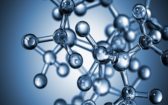Infertility therapy by using stem cells
Treatment of male and female infertility by using stem cells Treatment of female infertility by stem cells The purpose of stem cell therapy in the treatment of female infertility is to eliminate the causes that play a role in infertility in this case. Treatment with stem cells has Read more















